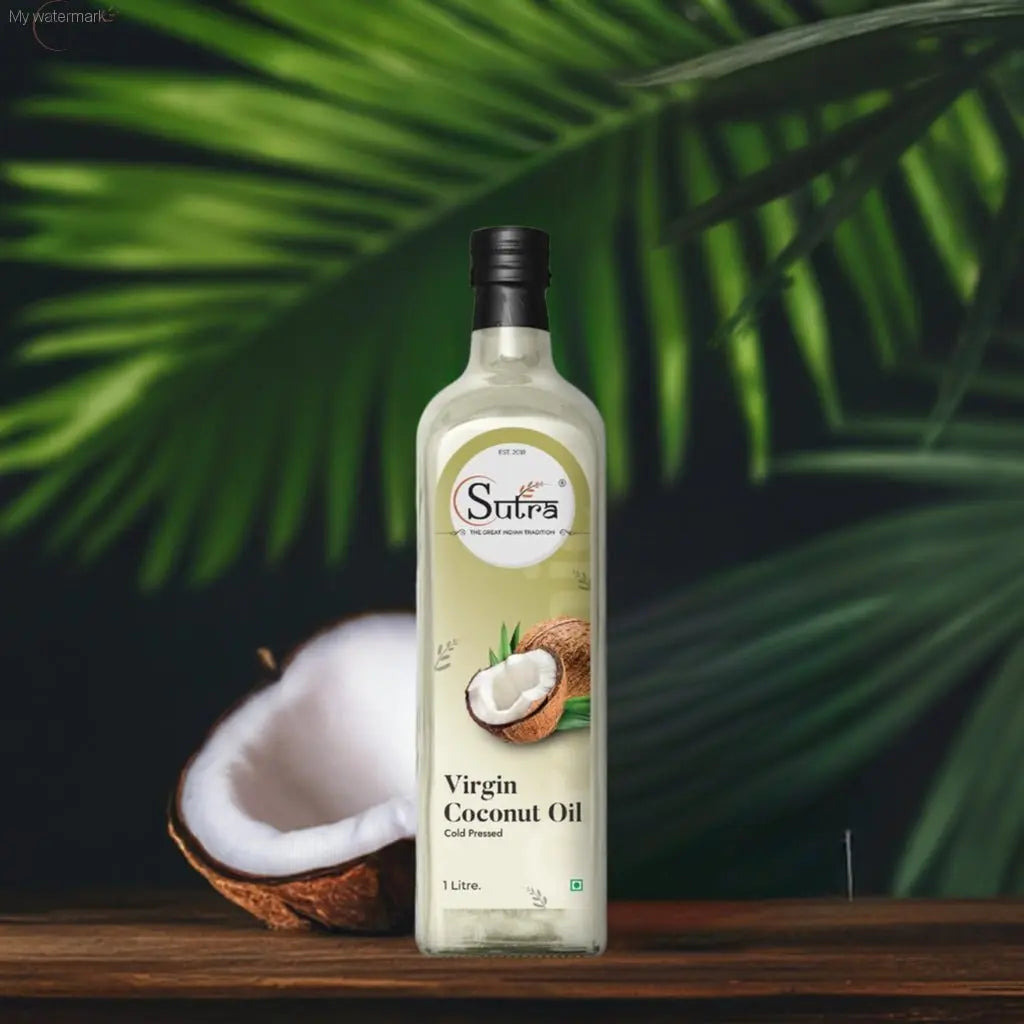Surprising Benefits of Coconut Oil for Cooking, Baking & Health

The Surprising Benefits of Coconut Oil for Cooking, Baking & Health
Coconut oil has gained immense popularity for its unique flavor and numerous health benefits. Whether you're sautéing vegetables, baking treats, or searching for a healthy butter alternative, coconut oil can enhance your cooking experience while supporting overall wellness.
1. High Smoke Point for Versatile Cooking
Understanding Smoke Points
Coconut oil has a high smoke point (350°F - 400°F), making it perfect for frying, sautéing, and baking. Unlike refined oils, it remains stable under heat, preventing harmful compound formation.
Practical Cooking Applications
- Stir-Frying: Adds a rich, tropical flavor to vegetables and proteins.
- Frying: Ideal for crispy, flavorful fish, chicken, and plant-based proteins.
- Baking: A perfect butter substitute, adding a subtle coconut taste to baked goods.
2. Rich in Medium-Chain Triglycerides (MCTs)
The Science Behind MCTs
Coconut oil is rich in medium-chain triglycerides (MCTs), which are easily digested and converted into energy. These fats support weight management by increasing satiety and boosting metabolism.
Ways to Incorporate MCTs into Your Diet
- Add to smoothies for an energy boost.
- Replace butter or vegetable oils in baking.
- Stir a teaspoon into coffee for a creamy, energizing drink.
3. Natural Antimicrobial Properties
Harnessing Lauric Acid
Coconut oil contains lauric acid, which converts into monolaurin—a powerful antimicrobial that helps fight bacteria, viruses, and fungi. This contributes to gut health and immune support.
Ways to Support Your Immune System
- Use coconut oil in cooking and baking.
- Mix it into salad dressings for a health boost.
- Make homemade energy bars with coconut oil for daily nutrition.
4. Enhancing Flavor in Dishes
Adding a Tropical Twist
Coconut oil enhances both sweet and savory dishes, making it a key ingredient in tropical and Asian cuisines.
Best Flavor Pairings
- Spices: Turmeric, ginger, and cinnamon.
- Fruits: Pineapple, mango, and bananas.
- Vegetables: Sweet potatoes, carrots, and leafy greens.
5. A Healthier Substitute in Baking
Replacing Butter & Vegetable Oils
Coconut oil works as a 1:1 replacement for butter or other oils in baking, making it a great choice for vegan and dairy-free diets.
Baking Tips
- Melt coconut oil for liquid batters (cakes, muffins).
- Use solid coconut oil for flaky textures (pie crusts, cookies).
- Choose unrefined coconut oil for a stronger coconut flavor or refined coconut oil for a neutral taste.
Conclusion: Elevate Your Cooking with Coconut Oil
Incorporating coconut oil into your kitchen routine enhances flavor while supporting overall health. Whether replacing traditional oils, exploring new recipes, or seeking a natural energy source, coconut oil delivers multiple benefits.
🌟 Try our exclusive Coconut Oil & Cast Iron Paddu offer today for a premium cooking experience!
Blog Title with URL
📌 "The Ultimate Guide to Coconut Oil: Cooking, Baking & Health Benefits"
🔗 www.sutrakart.com/blog/coconut-oil-benefits
FAQs
1. Is coconut oil healthy for cooking?
Yes, coconut oil is stable at high temperatures, rich in healthy fats, and free from harmful compounds found in some refined oils.
2. Can I use coconut oil in baking?
Absolutely! Coconut oil is a great butter substitute in baking, enhancing flavor and adding healthy fats to your recipes.
3. What are the best ways to incorporate coconut oil into my diet?
You can stir it into coffee, use it for frying, mix it into smoothies, or substitute it in baking for a health boost.
4. How is coconut oil different from other oils?
Coconut oil contains a high amount of medium-chain triglycerides (MCTs), which are metabolized faster than long-chain fats, supporting energy and weight management.
5. Can I use coconut oil for skincare?
Yes! Coconut oil is a natural moisturizer for skin and hair. However, those with sensitive skin should test a small amount first.


